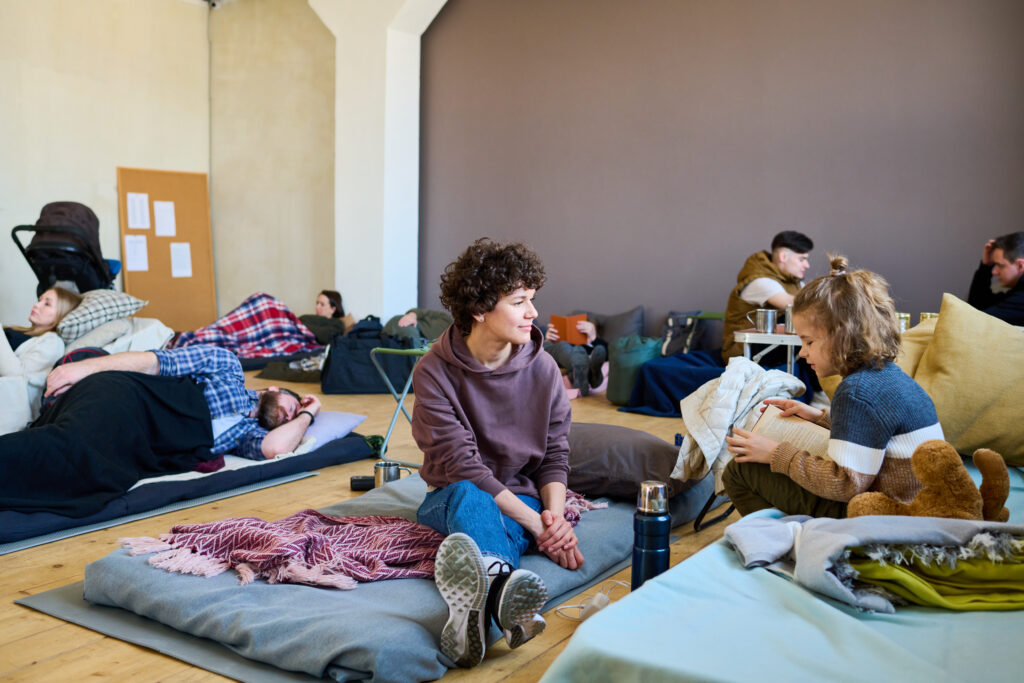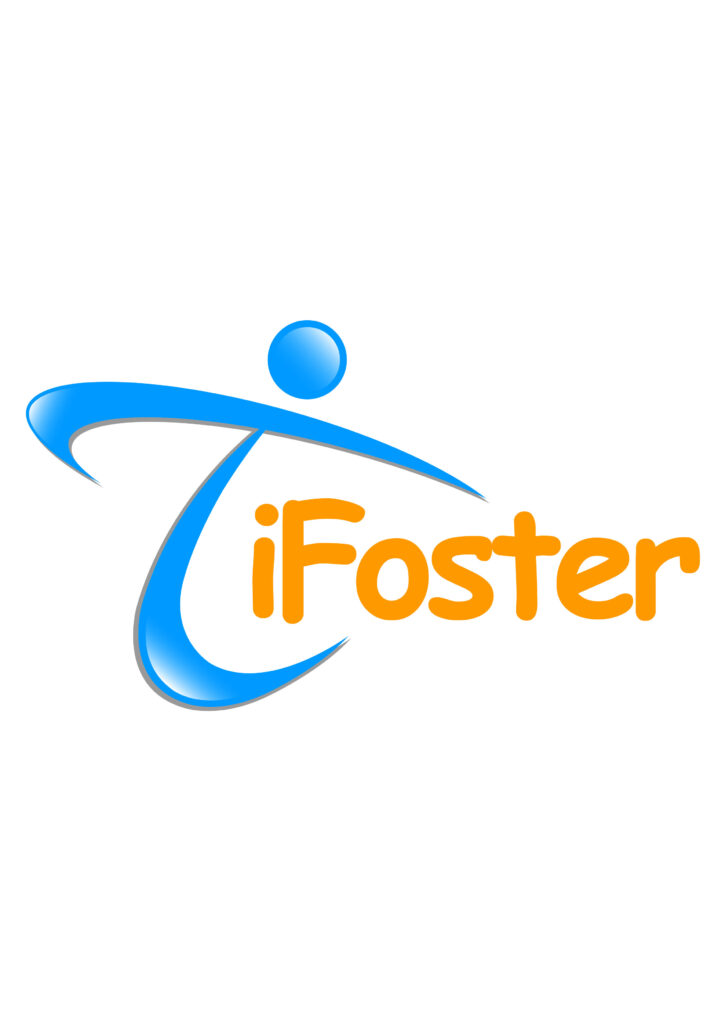Youth In Care
Click through the tabs to learn more about the various resources offered to current and transitioning foster youth!
- Education
- Employment
- Financial Security
- Food Security
- Housing
- Emergency Shelters
- Health Care
- Mindfulness
- iFoster
- Hotlines
- Minority Affirming Resources
- Independent Living Program
- California Youth Connection
- California Foster Care Ombudsperson
- Transitional Age Youth Financial Assistance Program
- Foster Youth Bill of Rights

Current national research shows that children in foster care are at higher-risk of dropping out or unlikely to attend college without support. The county is dedicated to serving the educational needs of our youth and increasing graduation and college attendance rates. Below are some of the programs and supports we have available to our youth in care.
-
-
- Youth between the ages of 14 and 24 have direct access to a college transition specialist through the Independent Living Program (ILP). Learn more in it’s respective tab.
- Youth who wish to pursue college or vocational training may receive financial assistance by completing their Free Application for Federal Student Aid (FAFSA). Resources to help you fill out the FAFSA.
- Eligible youth who are or were in foster care and demonstrate financial need may apply for the Chafee grant, which awards up to $5,000 per year. Learn more or apply here.
- The Transitional Age Youth Financial Assistance Program (TAY-FAP) works with youth to identify and fill resource gaps that might impact the youth’s success in college or vocational training. Learn more in it’s respective tab.
- California Pathways to College is committed to assisting former foster youth in reaching their educational goals.
- College Planning Guide provides support to aspiring college students.
- The Cuesta College Promise Scholarship provides free tuition to eligible new SLO county high school graduates for two years.
- This document provides students with key tips on applying for scholarships as well as a list of private scholarship opportunities, including some just for students with experience in the foster care system.
- Foster Youth for Success provides scholarships to help fund post-secondary education for foster youth range between $1,500 and $5,000 a year to pay for books and supplies, community college classes or university classes.
-
The CSUs and UCs provides a wide range of services to support incoming freshmen and transfer students who were in foster care.
- California Community Colleges (CCC) offers eligible current and former foster youth support and services that could include help with books and supplies, transportation, tutoring, food and emergency housing through either EOPS the NextUp program. Learn more here.
- The County has partnered with Grade Potential Tutoring to provide K-12 tutoring to foster youth and their families visit their website here! Or contact Foster Support at (805) 781-1917 or ss_FosterSupport@co.slo.ca.us for a referral!
- Students in foster care can receive funding for school-use such as materials and supplies, AP exams, field trips, prom tickets, sports gear, yearbooks and more! View the flyer here and contact your social worker to be referred!
-

The department is committed to providing resources to address ways to help transitioning youth receive appropriate job training, learn job application and interviewing skills and maintain a rewarding career.
-
-
- America’s Job Center of CA in San Luis Obispo helps adults and displaced workers with an array of services including but not limited to finding a job, practicing interview techniques, career planning, or upskilling through training. They have tools and staff to help you find your next career. The Job Center can be reached at (805) 439-2557 or by visiting 3450 Broad Street, Suite 103B, San Luis Obispo, CA 93401 in the Acacia Creek Business Park. Informational Flyer
- The WIOA Youth program is a no-cost employment and training program available to youth participants between the ages of 16-24. Opportunities include job readiness training and upskilling including certifications, HSD/GED, or paid work experience. The WIOA Youth program allows participants to earn incentives along the way. Call (805) 703-3390 for an appointment. Informational Flyer
- The Workforce Development Board (WDB) is part of the public workforce system that supports economic expansion and development of talent in the local workforce. The WDB utilizes local labor market information to develop strategies to focus resources on high growth industries in the area. The WDB contracts with services providers for employment and training activities for youth, adults and dislocated workers. Services under the WDB also include Rapid Response and Layoff Aversion programs to assist employers and their employees during downsizing or business closures.’
- Workability 1 in San Luis Obispo provides paid work experience opportunities to interested youth with an IEP.
Helpful Articles:
- Resume Building Tips
- Your Rights as a Worker
- Summary of rules for minor employees
- Understanding your paycheck deductions
- Job Search Strategies
-
 Taxes, insurance, credit scores and more may be confusing to navigate without help. Below are some resources to help you in these areas and more.
Taxes, insurance, credit scores and more may be confusing to navigate without help. Below are some resources to help you in these areas and more.
What you need to know about taxes
What you need to know about insurance
A Financial Empowerment Toolkit for Youth and Young Adults in Foster Care
Strategies and Tips for Managing your Money
Did you know starting 2023 the Foster Youth Tax Credit provides a refund of up to $1,083 (or $2,166 if their spouse qualifies as well) to eligible foster youth? Learn more about this new program here, and foster youth can also file their taxes for FREE here!
 Food is important for the proper growth and development of youth. Some may struggle with access to healthy options, below are some resources that may help:
Food is important for the proper growth and development of youth. Some may struggle with access to healthy options, below are some resources that may help:
– CalFresh provides a FREE monthly sum of money to eligible households to spend on food they need. Apply now here or learn more in English or Spanish
Those on CalFresh may use their money at the various local farmer’s markets to buy local fresh produce! Learn more here
– SLO Foodbank distributes food across the county learn about their schedule and eligibility in English or Spanish
– Women Infants and Children (WIC) is like CalFresh in that it provides monthly benefits to spend on nutritious food! Learn more or apply here
 Young people who age out of foster care rather than secure permanent placement may face unique obstacles as they prepare to leave care and begin their adult lives. In California, close to 31% of transition-age foster youth experience housing insecurity, so it is important that young people receive thoughtful transition planning and support. These resources provide strategies to help youth transitioning out of care, locate and maintain safe and affordable housing.
Young people who age out of foster care rather than secure permanent placement may face unique obstacles as they prepare to leave care and begin their adult lives. In California, close to 31% of transition-age foster youth experience housing insecurity, so it is important that young people receive thoughtful transition planning and support. These resources provide strategies to help youth transitioning out of care, locate and maintain safe and affordable housing.
-
-
- Transitional Housing Program (THP) – The goal of THP is to help participants become independent by providing a safe environment for youth to successfully learn how to be self-sufficient. Participants can live alone, with roommates, or with an employee on-site to help them. The THPP staff, county social workers and ILP coordinators support and guide them. Supportive services include: educational guidance, employment counseling, and assistance reaching emancipation goals outlined in a participant’s Transitional Independent Living Plan. The participant must also be involved in the Independent Living Program. For more information about THP, contact your social worker.
- Supervised Independent Living Placement (SILP) – Youth who agree to remain in extended foster care between the ages of 18 and 21, may be approved to live in a SILP. Examples of approved SILP options include, but are not limited to: college dorms, staying with relatives, sharing an apartment with friends or renting a room. There are eligibility and participation requirements for this type of placement. If you are interested in learning more, contact your social worker.
- Foster Youth to Independence (FYI) Initiative – This initiative can provide housing support in the form of a voucher to young people aging out of foster care (or who have had foster care involvement) and are at risk of homelessness. The county has a limited number of these vouchers but, if you are interested in learning more, contact your social worker.
- Family Unification Program (FUP) – This program provides housing choice vouchers to eligible youth who are between 18 and 24 years old, and who have left foster care or will leave foster care within 90 days. The county has a limited number of these vouchers, but if you are interested in learning more, contact your social worker.
The Difference Between FYI and FUP:
While FYI vouchers can only be used for young people who are in or have left foster care. FUP vouchers can be used for families and young people who are leaving or have left foster care.
-
Other resources to note:
The Young Adult’s Guide to Housing
 Current and transitioning foster youth often face challenging situations, in some cases needing access to emergency shelters. Below are places that offer temporary respite to those who may need it.
Current and transitioning foster youth often face challenging situations, in some cases needing access to emergency shelters. Below are places that offer temporary respite to those who may need it.
(805)-544-4004 40 Prado Road, San Luis Obispo, CA
40 Prado Shelter – Provides safe overnight parking, showers, meals, mental and physical health services and more. *FREE OF CHARGE* Minors must have parental consent to access services.
(805)-462-3663 6370 Atascadero Avenue, Atascadero, CA
ECHO Shelter – Provides food, shelter and supportive services. *FREE OF CHARGE* Minors must have parental consent to access services.
 The county is determined to maintain the health of our youth, below are accessible, confidential, comprehensive services in San Luis Obispo.
The county is determined to maintain the health of our youth, below are accessible, confidential, comprehensive services in San Luis Obispo.
REPRODUCTIVE:
CAPSLO Health Services – all-encompassing reproductive health care for men, women and teens (805) 544-2478
Planned Parenthood of SLO – provides low or no cost reproductive health services. (888) 898-3806
SLO ALPHA – pregnancy and parenting support. (805) 541-3367
Tree of Life Pregnancy Support Center – pregnancy services (805) 543-6000
GENERAL:
Practicing mindfulness is a great way to take care of yourself when facing the unique obstacles and challenges in foster care. It can help better regulate your emotions, reduce stress, and build resilience!

Below are some articles by Ron Huxley, a local therapist on practicing mindfulness:
 iFoster provides several resources to foster youth such as:
iFoster provides several resources to foster youth such as:
Daily Living Resources: Get assistance with housing/shelter, food, utilities, basic needs
Government Benefits Support: Get the government benefits you are eligible for with benefits counseling, application assistance and help securing state IDs, SSNs, birth certificates
Technology Access: Get a free or discounted smartphone with unlimited talk/text/data plans, and hotspots. Apply here!
Health and Wellness Access: Get free and discounted glasses, braces and life coaching from their clinical MSW plus mental health referalls and Medicaid enrollment
Education Assistance: Excel in school with free tutoring for grades k-12, discounted supplies, post-secondary exploration and help with FAFSA/Pell/Chafee grant application
Employment Aid: Get a job and start your career path with job trainings and coaching, career exploration for paid internships and employment placement.
Download their app on the Google Play store or register as a member here! If you are a foster youth currently active in an ILP, ask your social worker to register you!
 Life can present unexpected challenges, and it’s important to have a reliable network of support when you need it most. Whether you’re seeking guidance, information, or someone to talk to, these hotlines offer a confidential and understanding ear 24/7.
Life can present unexpected challenges, and it’s important to have a reliable network of support when you need it most. Whether you’re seeking guidance, information, or someone to talk to, these hotlines offer a confidential and understanding ear 24/7.
Lumina Alliance – Confidential support for survivors of sexual assault and intimate partner violence (805)-545-8888.
Runaway and Homeless Youth – Confidential support for youth who have run away, are homeless, or are thinking of running away. (800)-786-2929
Central Coast Hotline – Confidential support for mental health and suicide prevention. (800)-783-0607
 We are determined to affirm and uplift our BIPOC youth through supporting their and celebrating their diverse cultures. Below are resources that contribute to a more diverse and inclusive SLO.
We are determined to affirm and uplift our BIPOC youth through supporting their and celebrating their diverse cultures. Below are resources that contribute to a more diverse and inclusive SLO.
R.A.C.E Matters SLO – A community focused on creating more Black-centered spaces in SLO and spreading cultural awareness.
Gala Pride & Diversity Center – Supports and empowers people of all sexual orientations and gender identities.
Northern Chumash Tribe – Offering a foundation for the Chumash people to revitalize their heritage and culture.
Latino Outreach Council – Supporting the rapidly growing Latino population in SLO
AAPI SLO – AAPI SLO raises awareness of inequities while strengthening the existing AAPI (Asian American, Pacific Islander) community
 The Independent Living Program (ILP) is a free service designed to provide resources and support for foster youth between the ages of 14-21. This program incorporates their unique needs and culture to help them become self-sufficient following their emancipation from the foster care system. For more information, or to enroll in this program, contact your social worker. ILP Brochure
The Independent Living Program (ILP) is a free service designed to provide resources and support for foster youth between the ages of 14-21. This program incorporates their unique needs and culture to help them become self-sufficient following their emancipation from the foster care system. For more information, or to enroll in this program, contact your social worker. ILP Brochure
 California Youth Connection (CYC) is a youth-led organization that develops leaders who empower each other and their communities to transform the Foster Care System through legislative, policy, and practice change. Foster youth will be equal partners in contributing to all policies and decisions made in their lives. All youth in foster care will have their needs met and the support to grow into healthy and vibrant adults. Get involved! Make a difference!
California Youth Connection (CYC) is a youth-led organization that develops leaders who empower each other and their communities to transform the Foster Care System through legislative, policy, and practice change. Foster youth will be equal partners in contributing to all policies and decisions made in their lives. All youth in foster care will have their needs met and the support to grow into healthy and vibrant adults. Get involved! Make a difference!
 Provides a voice to speak and act on behalf of youth in foster care and can provide information on the rights of youth in care. Call the Toll Free Help Line at (877) 846-1602 or email fosteryouthhelp@dss.ca.gov
Provides a voice to speak and act on behalf of youth in foster care and can provide information on the rights of youth in care. Call the Toll Free Help Line at (877) 846-1602 or email fosteryouthhelp@dss.ca.gov
 The Transitional Age Youth Financial Assistance Program (TAY-FAP) provides financial support to ILP eligible youth with needs related to enrolling or maintaining enrollment in school or employment that enhances their ability to achieve independence and self-sufficiency
The Transitional Age Youth Financial Assistance Program (TAY-FAP) provides financial support to ILP eligible youth with needs related to enrolling or maintaining enrollment in school or employment that enhances their ability to achieve independence and self-sufficiency
TAY-FAP financial support may pertain to:
- School supplies and fees
- Transportation expenses
- Groceries (if not eligible for CalFresh)
- Mentorship and tutoring
- Housing in a dormitory, house or apartment
- Urgent, essential or emergency needs not covered by Medi-Cal
- Saving’s match program that can help you earn up to an additional $1,200 (first year only)
- Case management support for ages 21 to 24
To get started, reach out to your ILP case manager, social worker or college transition specialist. Informational Flyer
 Foster Youth Bill of Rights – Youth in foster care have a variety of supports and services available to them while in care, but in order to be successful and thrive, youth must also be aware of their rights. To support youth in making informed decisions about their lives, they must be educated about the choices they have.
Foster Youth Bill of Rights – Youth in foster care have a variety of supports and services available to them while in care, but in order to be successful and thrive, youth must also be aware of their rights. To support youth in making informed decisions about their lives, they must be educated about the choices they have.